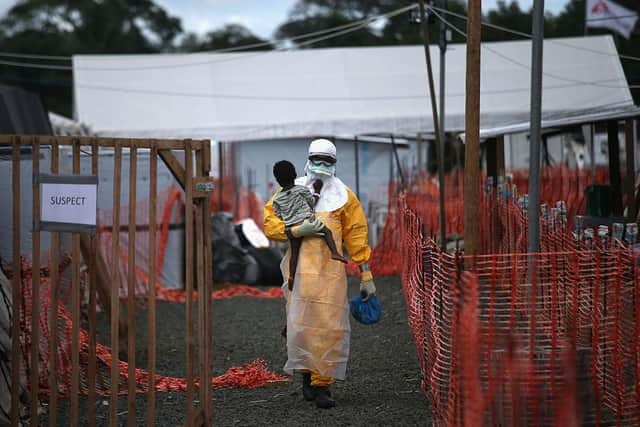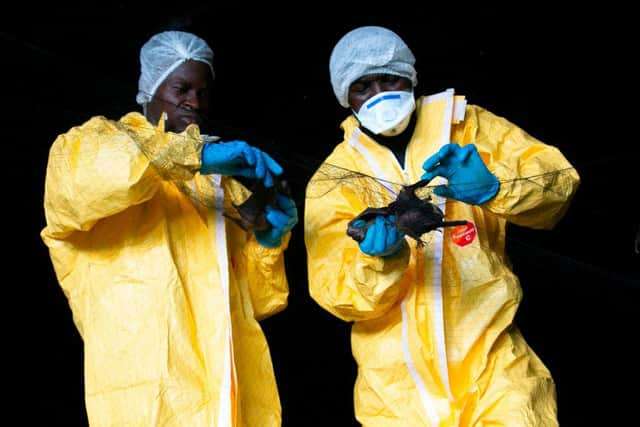Ebola outbreak 2021: symptoms of the virus and how its spread as Guinea declares epidemic
A resurgence of the deadly Ebola virus in West Africa has led the World Health Organisation (WHO) to place six neighbouring countries on alert.
The country of Guinea reported multiple new cases and five deaths this week, and the Democratic Republic of Congo has confirmed four new cases this month, a resurgence of a previous outbreak which has claimed 2,243 lives since August 2018.
Advertisement
Hide AdAdvertisement
Hide AdThe disease gained worldwide attention between 2013 – 2016, when an outbreak on the African continent killed more than 11,300 people, mostly in Guinea, Sierra Leone and Liberia.


Here is everything you need to know about it
Which countries are on alert?
Margaret Harris from the WHO told a briefing: "We have already alerted the six countries around, including of course Sierra Leone and Liberia, and they are moving very fast to prepare and be ready and to look for any potential infection."


Guinea’s neighbours include Senegal, Guinea-Bissau, Mali, Ivory Coast, Sierra Leone, and Liberia.
An outbreak could cripple the under-funded health systems of many West African countries, and Ivory Coast, Mali and Sierra Leone have launched plans to stop any potential spread and with reinforced border controls in an attempt to stop the spread.
Guinea’s health ministry said it had identified 115 contacts of the known cases in the southeastern city of Nzerekore, and gene sequencing of Ebola samples from both Congo and Guinea is being carried out to learn more about the origins of the outbreaks.
"What worries us the most is the dangerousness of the disease given what we experienced five years ago,” said Remy Lamah, Guinea's Health Minister. "We do not want to relive such a situation."
Since the devastating epidemic in West Africa, the development of vaccines and treatments has greatly improved survival rates and containment efforts.
What is Ebola and is it a threat to the UK?
Ebola is an infectious and frequently fatal disease marked by fever and severe internal bleeding, spread through contact with infected body fluids. It has a high mortality rate, but is only spread through intimate contact with body secretions, such as blood or vomit.
Advertisement
Hide AdAdvertisement
Hide AdAccording to the NHS, while someone with the virus can bring it to the UK, the risk of it spreading is very low.
During the Ebola pandemic, the UK saw only three cases, and there were no deaths as a result of the disease; it’s highly unlikely Ebola will be able to spread to the UK.
Though the same was said of Covid-19, with international travel already locked down due to that pandemic and worldwide coronavirus restrictions in place, the chance of Ebola making it to the UK are even slimmer.
Since the devastating epidemic in West Africa, the development of vaccines and treatments has greatly improved survival rates and containment efforts, and unlike the deadly a few years ago, Guinean authorities have said they are better prepared to stop the spread of the virus.
Why has there been a resurgence?
Dr Harris said it wasn’t yet known if the new Ebola cases were the result of the disease persisting in the human population, or if newer strains well helped it jump from animals.
"Genetic sequencing that's ongoing will help with that information,” she added.
The funeral of a nurse who was buried in southeast Guinea on February 1 is believed to be the source of the latest outbreak, and seven people who attended have tested positive for the disease, with three dying.
Research is being carried out on bats – suspected of being at the origin of many epidemics transmitted to humans in recent years including Covid-19 – by scientists from the Franceville International Medical Research Centre (CIRMF) in Gabon.